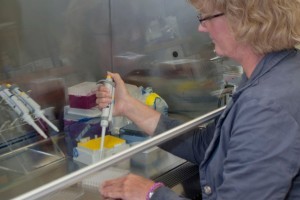
Marine Immunology
Basic and applied research on the health and immune systems of marine vertebrates
1600 Ken Thompson Parkway
Sarasota, FL 34236
Ph: (941) 388-4441
Hours: 10AM - 5PM
A 501(c)3 nonprofit organization.
We develop innovative tools and methods to help natural resource managers and others replenish and monitor fisheries. Our responsible stock enhancement approaches focus on improving fish survival and promoting important connections between fish and their ecosystems, and they are designed to benefit fish populations, habitats, fishers and the economies that depend on fisheries. Our projects involve both traditional and technological monitoring of fish and fisheries, from seine sampling in the tidal creeks to electronic monitoring of coastal fisheries.
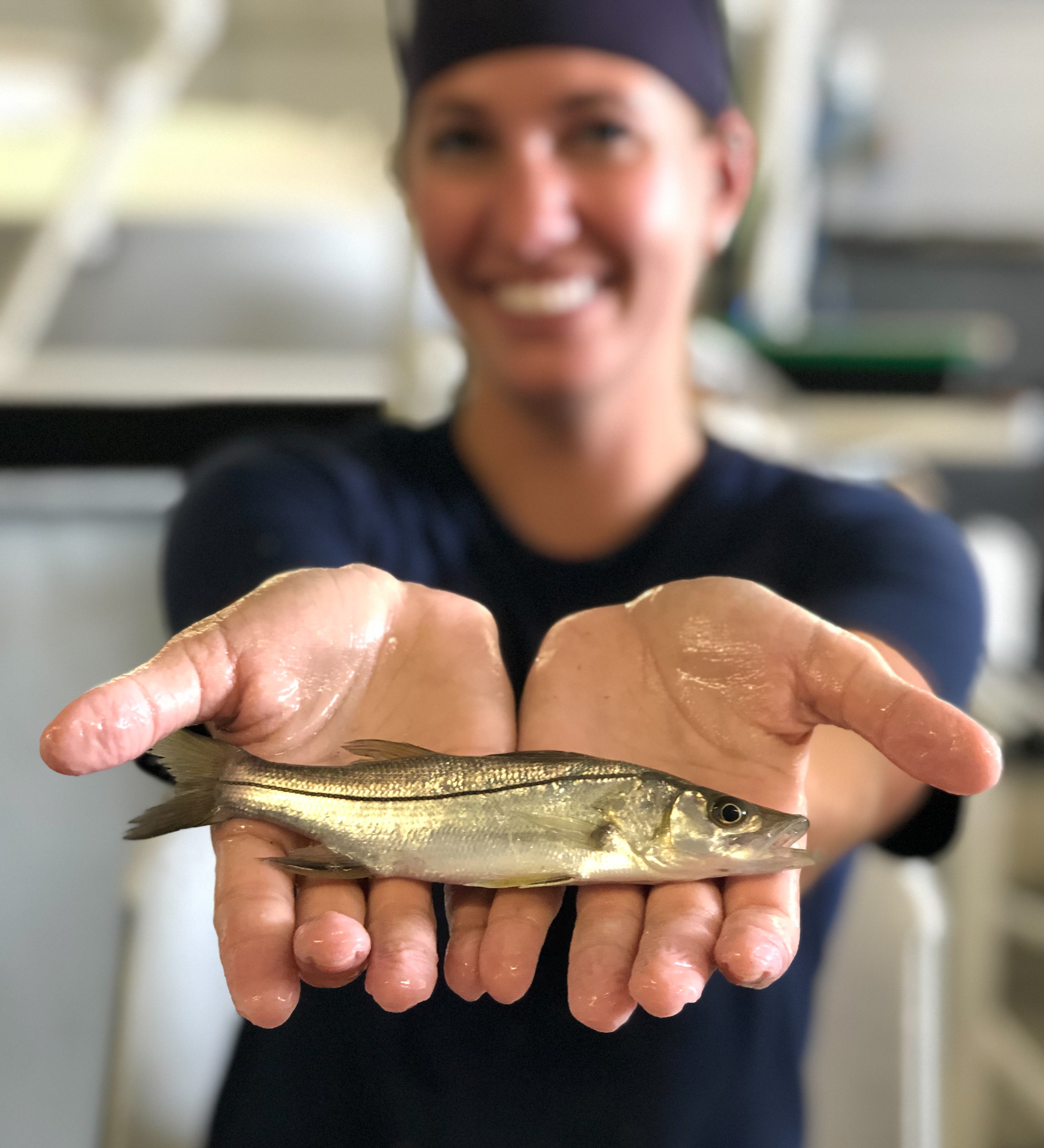
Saltwater recreational fishing contributes $8 billion annually to Florida’s economy, and in general, productive coastal waters help communities thrive by providing economic stability and recreational value. However, fisheries in Florida and beyond face significant challenges, including degraded habitat, reduced water quality, overfishing of some species, harmful algal blooms and more.
Fisheries enhancement (via stocking) involves raising juvenile fish in hatcheries and releasing them into the environment strategically, to improve fishery yields and/or benefit species conservation. To be effective, stock enhancement must be done responsibly and be driven by the best available science.
Mote scientists are working to resolve critical uncertainties about marine (saltwater) stock enhancement and help foster development of responsible and effective approaches to:
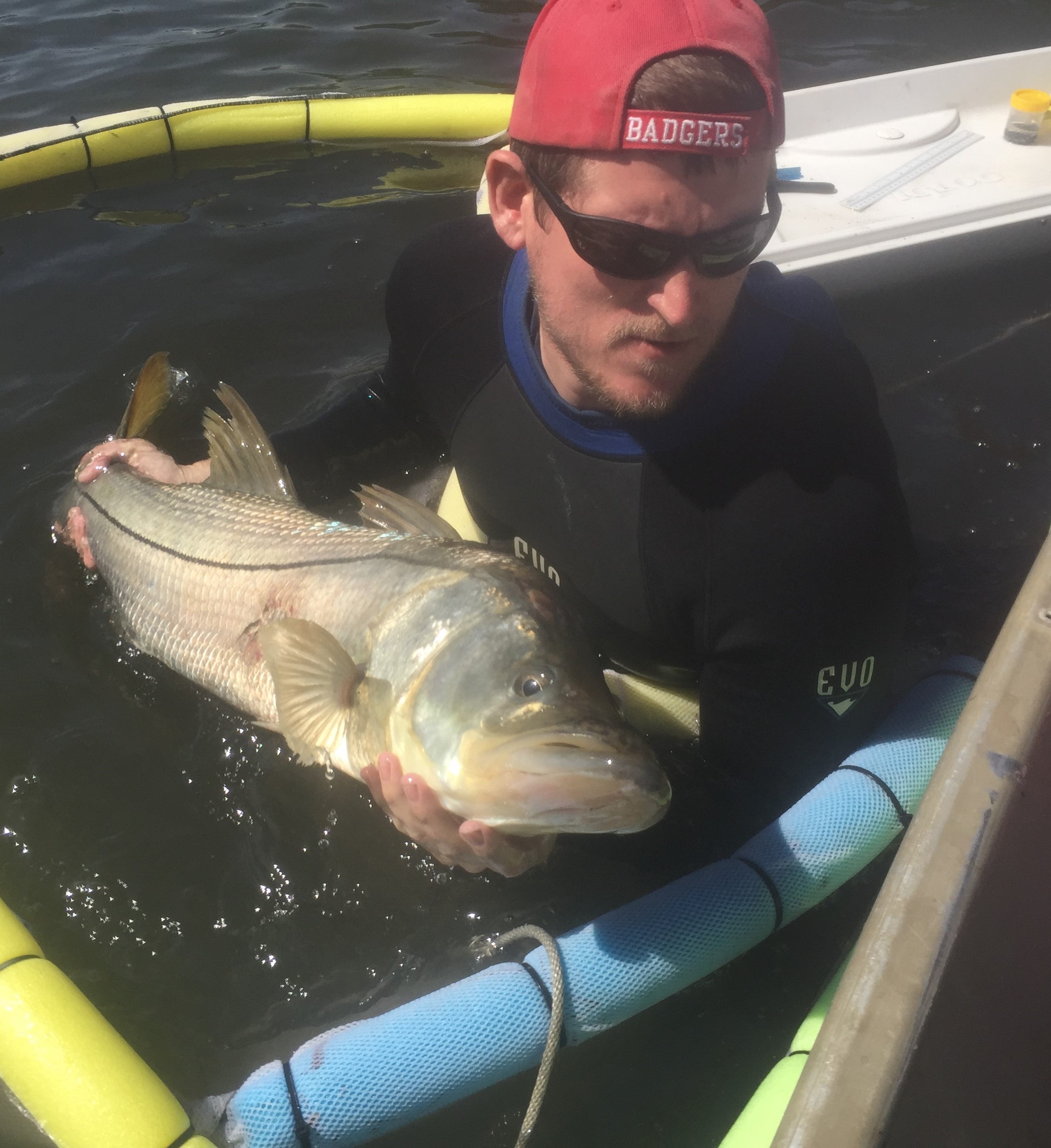
• Improve survival of hatchery-reared and wild fish to augment fishery yields and restore depleted marine fish populations
• Apply non-invasive monitoring techniques that can help with threatened and endangered species conservation.
• Advance basic knowledge about wild fish stocks and their ecology.
• Aid in restoration of natural ecosystems and improvement of artificial habitats to support existing fisheries or establish new ones.
• Respond rapidly to mitigate the impacts of ecological emergencies such as harmful algal blooms and cold stuns that cause major fish kills.
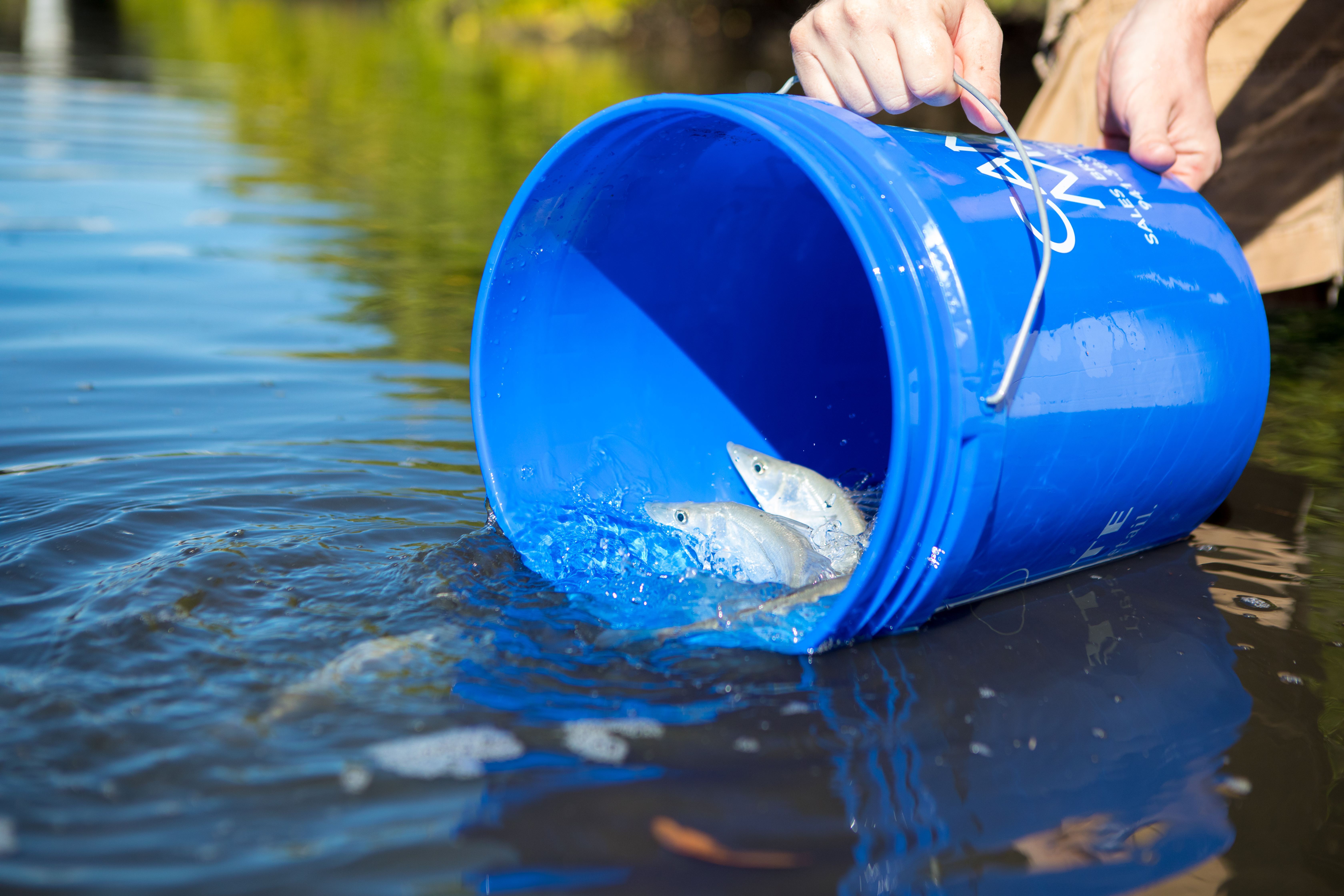 Our research combines established principles of fisheries ecology with novel investigative methods, particularly focusing on a model sportfish species—common snook—in southwest Florida ecosystems. Our discoveries offer insights not only for enhancing this vital fishery, but for multiple other fisheries along with populations targeted for conservation.
Our research combines established principles of fisheries ecology with novel investigative methods, particularly focusing on a model sportfish species—common snook—in southwest Florida ecosystems. Our discoveries offer insights not only for enhancing this vital fishery, but for multiple other fisheries along with populations targeted for conservation.
• To improve the outcomes of fisheries enhancement, we investigate the impacts of factors such as release habitat, timing of releases, magnitude of releases, fish size, acclimation measures, and conditioning of the fish before release on the impact of stocking activities. Applying what we learn from this enables “stocking strategically.”
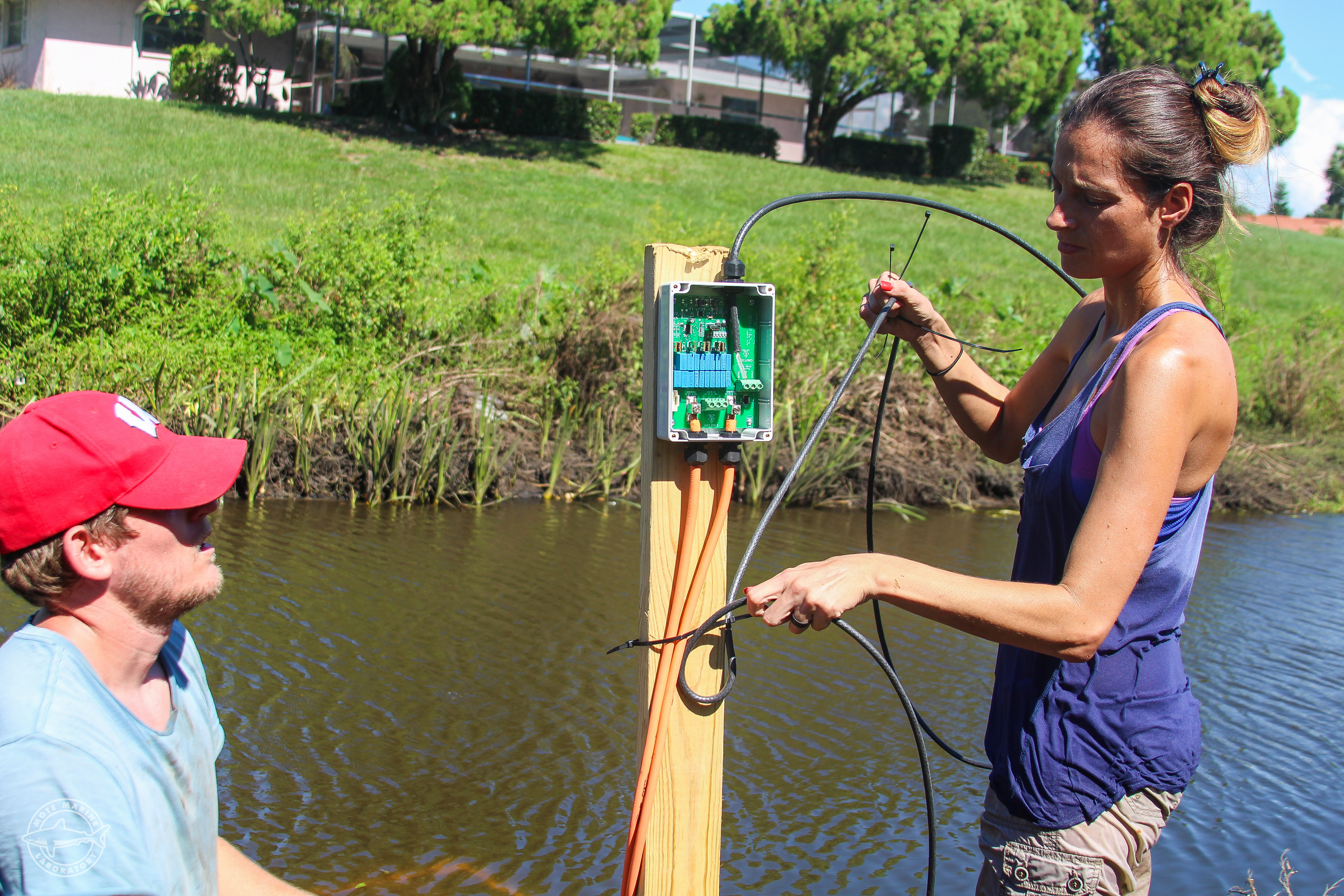 • We release hatchery-reared juvenile snook following a unique method that allows us to conduct timely assessments of their post-release survival, and in turn, develop statistical models of the potential influences on their survival. Each released snook is tagged with a passive integrated transponder (PIT tag) that is detected by antenna arrays on shore. These antenna arrays allow for fine-scale, timely detection of fish presence and movements after release.
• We release hatchery-reared juvenile snook following a unique method that allows us to conduct timely assessments of their post-release survival, and in turn, develop statistical models of the potential influences on their survival. Each released snook is tagged with a passive integrated transponder (PIT tag) that is detected by antenna arrays on shore. These antenna arrays allow for fine-scale, timely detection of fish presence and movements after release.
• By treating released snook as ecological probes, we work to identify ecosystem features that are important to protect or restore based on their ability to support healthy fish and fisheries. In particular, we focus on tidal creek systems in Sarasota County, Florida—some of these creeks have the capacity to support functional fish communities while others are losing this capacity because of human-driven modification. By releasing ecological probes into altered systems, we aim to identify areas that may benefit from naturalization.
• 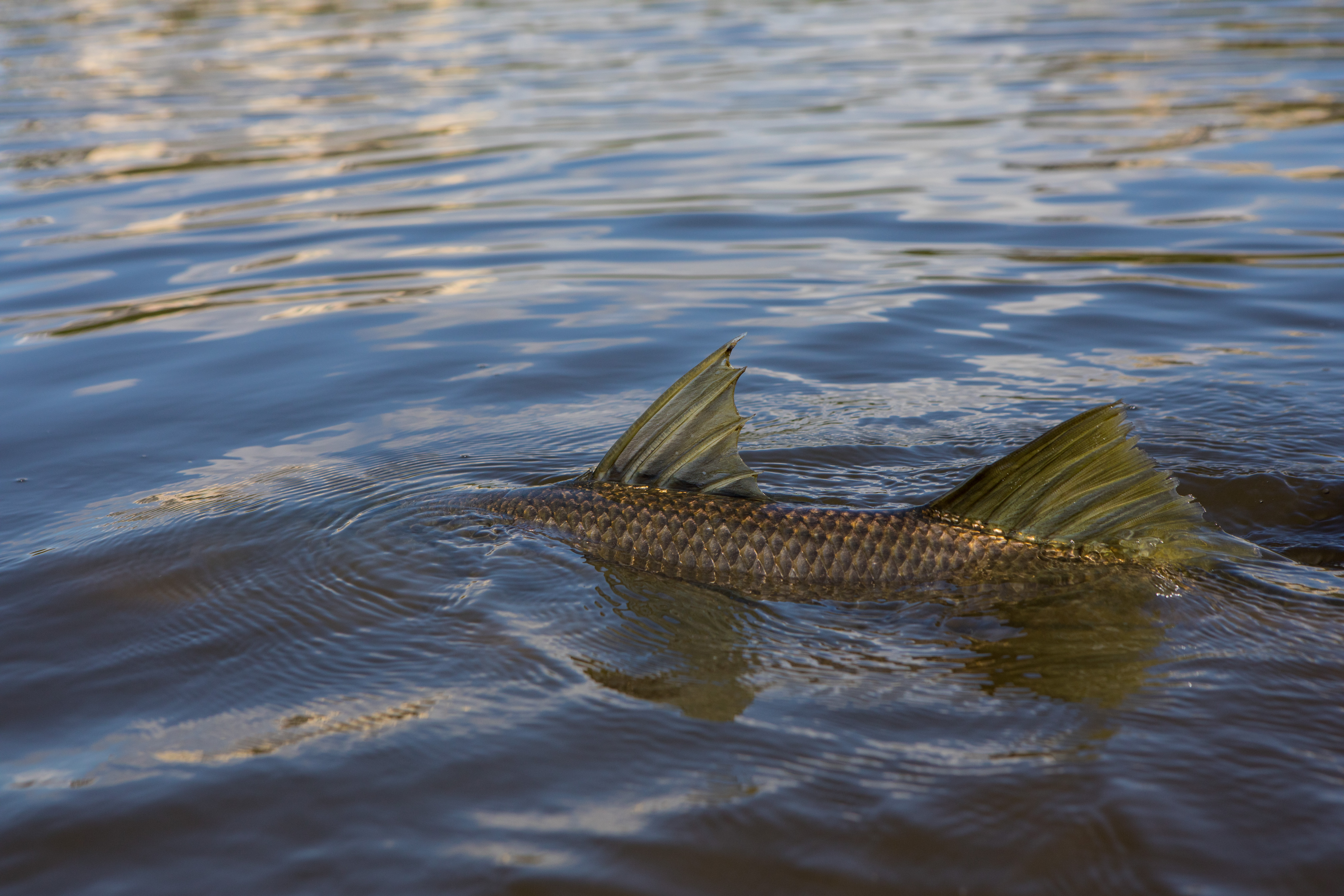 While snook use tidal creeks as “nurseries” (juvenile habitat) and overwintering sites, adult snook leave the creeks, move into coastal waters and spawn (breed) at specific bay passes and beaches. Mote scientists are monitoring these movements between shelter and feeding sites by fitting snook with acoustic tags that are detected by underwater receivers strategically placed in the environment. These efforts are part of the Sarasota Coast Acoustic Network (SCAN), a multi-institution team of scientists who use acoustic tags and receivers to monitor species ranging from snook to spotted eagle rays to sharks.
While snook use tidal creeks as “nurseries” (juvenile habitat) and overwintering sites, adult snook leave the creeks, move into coastal waters and spawn (breed) at specific bay passes and beaches. Mote scientists are monitoring these movements between shelter and feeding sites by fitting snook with acoustic tags that are detected by underwater receivers strategically placed in the environment. These efforts are part of the Sarasota Coast Acoustic Network (SCAN), a multi-institution team of scientists who use acoustic tags and receivers to monitor species ranging from snook to spotted eagle rays to sharks.
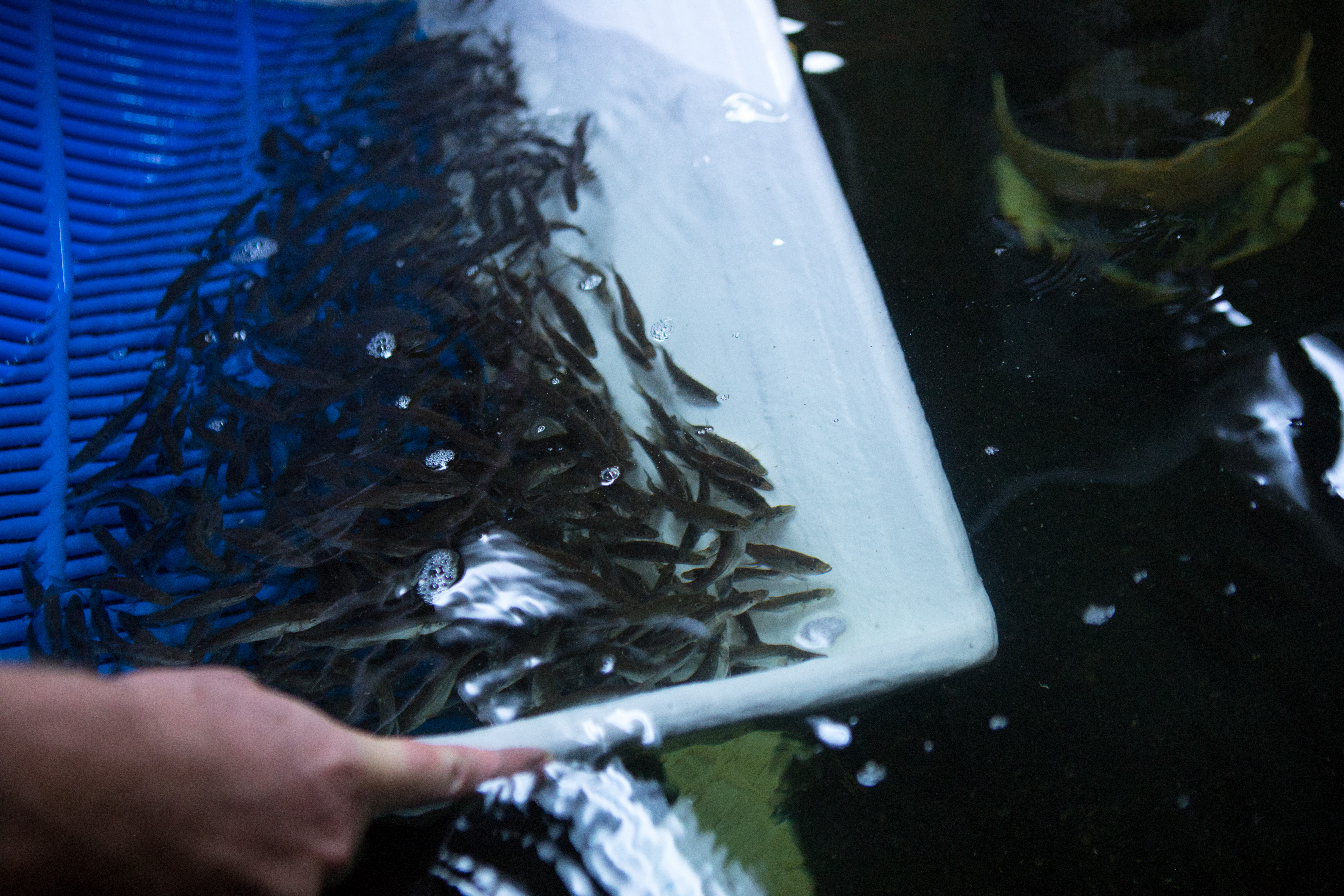 Many fisheries around the world—including sportfish and seafood species—are struggling to keep pace with the pressures of our growing human population. We strive to assist developing fisheries enhancement programs around the world by engaging together in research to develop specific guidelines for strategic stocking and effectively respond to these critical challenges. Mote’s Fisheries Ecology & Enhancement Program works closely with national and international partners and with Mote’s Marine & Freshwater Aquaculture Research Program, which advances sustainable methods for farming animals and plants in water—known as aquaculture. Our partnerships allow the Fisheries Ecology & Enhancement program to investigate new species for stock enhancement research, especially species that have never been mass produced before in hatcheries, and to pursue new avenues to promote responsible stock enhancement research and development.
Many fisheries around the world—including sportfish and seafood species—are struggling to keep pace with the pressures of our growing human population. We strive to assist developing fisheries enhancement programs around the world by engaging together in research to develop specific guidelines for strategic stocking and effectively respond to these critical challenges. Mote’s Fisheries Ecology & Enhancement Program works closely with national and international partners and with Mote’s Marine & Freshwater Aquaculture Research Program, which advances sustainable methods for farming animals and plants in water—known as aquaculture. Our partnerships allow the Fisheries Ecology & Enhancement program to investigate new species for stock enhancement research, especially species that have never been mass produced before in hatcheries, and to pursue new avenues to promote responsible stock enhancement research and development.
Another key local partner in our fisheries ecology and enhancement research is the Florida Fish and Wildlife Conservation Commission's Fish and Wildlife Research Institute (FWRI), which manages a Stock Enhancement Research Facility (SERF). This unique partnership has enabled a team effort in developing, testing and evaluating the effectiveness of stock enhancement as a fishery management tool in Florida. The researchers and fishery managers working together in this partnership are providing the scientific information needed to enable a responsible, adaptive-management approach in conducting and refining stock enhancement in Florida.
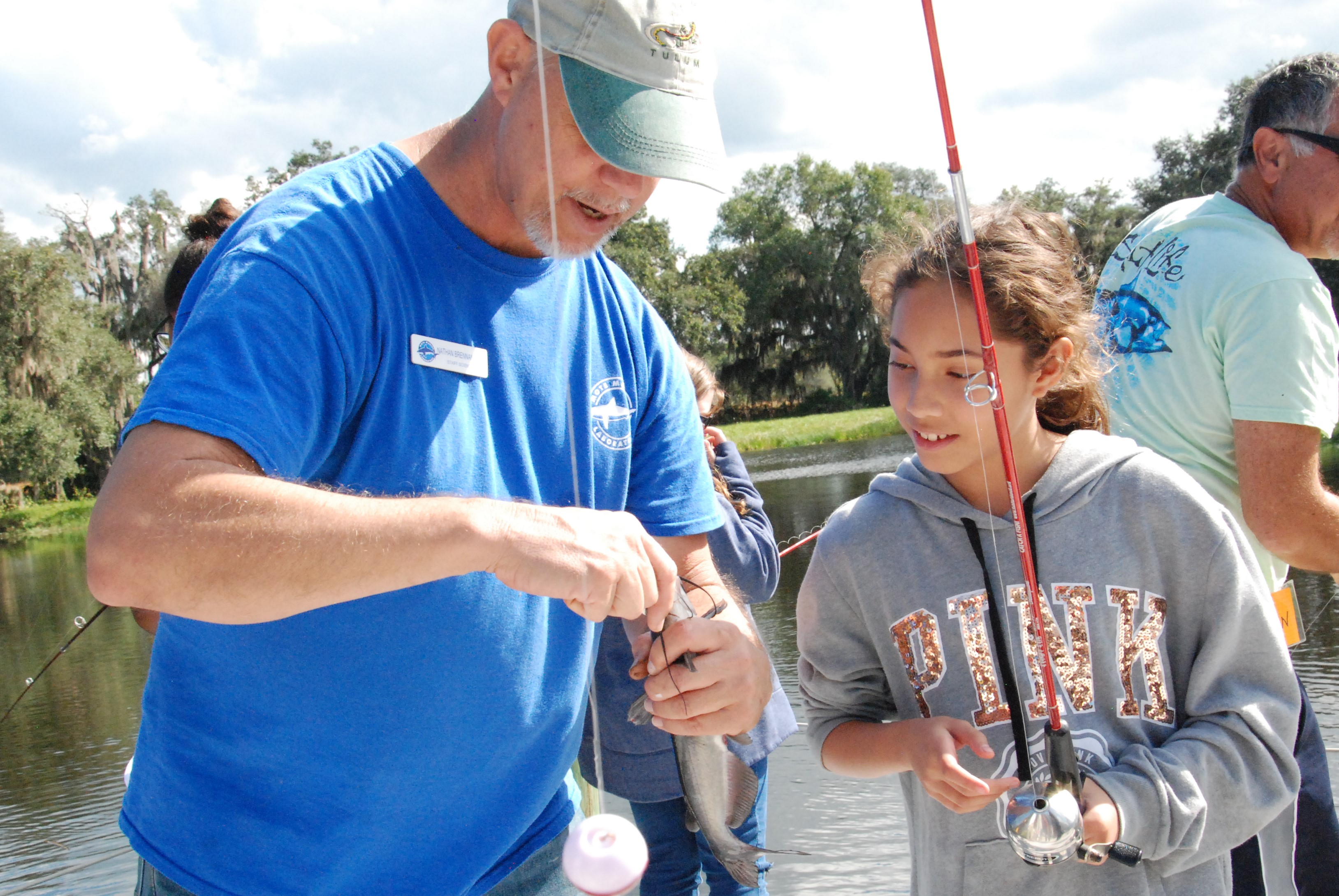 We share fisheries science and sustainable fishing practices with our communities by working with local fishing groups, hosting kids’ fishing clinics in partnership with Mote’s Education team, and partnering with stakeholder groups, such as the Sarasota Bay Fisheries Forum, to connect community members with fisheries management and research.
We share fisheries science and sustainable fishing practices with our communities by working with local fishing groups, hosting kids’ fishing clinics in partnership with Mote’s Education team, and partnering with stakeholder groups, such as the Sarasota Bay Fisheries Forum, to connect community members with fisheries management and research.